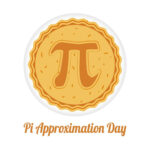Spoonerism Day honors ‘Spoonerisms,’ which are tongue slips that most of us make regularly. The term ‘spoonerism’ refers to the practice of switching the initial letters of words as you speak. Say swy flutter instead of a fly swatter, or runny babbit instead of a bunny rabbit. They earned their name from Reverend W. A. Spooner — was well-known for making this error frequently. Celebrate this event by refusing to be ashamed when you make a mistake in your speech. You — like Spooner — should always embrace your eccentricities. In current parlance, spoonerism refers to any such altering of sounds.
History of Spoonerism Day
Both the word and the holiday are named for William Archibald Spooner —a prominent Oxford don. On July 22, 1844, this absent-minded professor was born and became famous for his tendency of mixing sounds. Although numerous spoonerisms have been ascribed to him, most academics believe they are apocryphal, invented by others, and credited to Spooner to make a nice narrative. Reverend Spooner is far from the only person who has made this mistake. It is, in fact, fairly frequent.
Spooner was born in London in 1844 and went on to become an Anglican clergyman and scholar. During his 60-year tenure at Oxford University, he taught history, philosophy, and religion. He was a Dean from 1876 to 1889, and Warden, or president, from 1903 to 1924.
Spooner was a little albino with a pink complexion, terrible eyesight, and a head that was too big for his size. His reputation was that of a cheerful, courteous, and welcoming individual. He also appears to have been a bit of a slacker lecturer.
Spooner, on the other hand, was no dummy. His thinking was so quick that his mouth couldn’t keep up. Long before Spooner was born, the Greeks had a term for this sort of impediment — metathesis, which refers to the act of rearranging items. Because of Reverend Spooner’s trend-setting somersaults, our own tiny tips of the elbow will be regarded as the humorous slips of an agile intellect rather than the humiliating babblings of a nitwit. So let us congratulate the gentleman who loaned his tame to the term.
Spoonerism Day timeline
The obnoxious professor —William Archibald Spooner — is born and becomes well-known for his proclivity for mingling noises.
The term ‘spoonerism’ becomes well-known, according to an article from “The New York Times.”
According to a “Daily Herald” story, spoonerisms are a ‘legend,’ Spooner's former pupil Robert Seton confesses that Spooner introduced the hymn in a wordplay.
Comedian F. Chase Taylor releases “My Tale Is Twisted,” which contains 44 ‘spoonerized’ versions of popular children's stories.
Spoonerism Day FAQs
Is spoonerism count as a disease?
Cluttering includes things like spoonerisms, malapropisms, Colemanballs, and Freudian slips. The term ‘stuttering’ is frequently used to describe the speech disorder of cluttering rather than the speech problem of stuttering.
How to know someone is spoonerism?
As an example, instead of stating “The Lord is a caring shepherd,” say “The Lord is a pushy leopard.” While spoonerisms are usually heard as slips of the tongue and having one’s words mixed up, they can also be employed purposely as wordplay.
What’s the distinction between spoonerism and malapropism?
The major distinction between a spoonerism and a malapropism is that a spoonerism happens when two words’ matching sounds are interchanged, whereas a malapropism occurs when two words’ similar sounding sounds are interchanged.
Spoonerism Day Activities
Do some fun challenge
Introduce spoonerisms to your friends or family with an entertaining and interesting set of challenge cards. They'll like learning about these humorous changes of phrase that they may use to add comedy and hilarity to their work, whether it's a slip of the tongue or a tip of the slongue.
Read some inspiration
You may also read fairy tales rewritten using spoonerisms on the internet. One of the reasons that fairy tales are popular for spoonerism rewriting is that many people are already familiar with the stories, thus the jumbled words make the story much funnier since they change the meaning of the stories we all know.
Share it on social media
Use the hashtag #SpoonerismDay to share your spoonerism tale on social media. Let everyone know how funny you are!
5 Facts About Spoonerism
Fluid phonetics
Because of its broad range of sounds and flowing phonetics, English lends itself nicely to Spoonerisms.
Different name
A ‘marrowsky’ is a Spoonerism named for a count in Poland, who like Spooner, would be remembered more for his speaking habits than his professional accomplishments.
Logical pattern
Spoonerisms — according to cognitive scientists —follow a logical structure rather than being wholly random.
Structure of a language
Like a rubbernecker in traffic, spoonerism is an indication that our brain is properly comprehending the structure of a language, it's just distracting and unable to cooperate.
Spoonerism helped scientists
Scientists have used spoonerisms to better understand how the brain creates language.
Why We Love Spoonerism Day
Rich source of humor
Spoonerism was once considered a tongue slip, but currently, it is done for the sake of humor. There are many more catchy phrases reserved only for amusement!
It creates awareness
This type of one-of-a-kind day may be used to raise awareness of rime awareness through phoneme alteration and deletion called the ‘Spoonerism test.’ The Spoonerisms test is also beneficial since it evaluates a child's capacity to segment words and synthesize the fragments into a new term.
Wordplay is fun
Those types of things-to-know are also a lot of fun, especially if you get to be the smarty-pants who has to tell them. Whatever you want to call it — trivia, tidbits, wordplay, or whatever you want to call it — these fantastic books are screaming out to the nerd in everyone.
Spoonerism Day dates
| Year | Date | Day |
|---|---|---|
| 2025 | July 22 | Tuesday |
| 2026 | July 22 | Wednesday |
| 2027 | July 22 | Thursday |
| 2028 | July 22 | Saturday |
| 2029 | July 22 | Sunday |












